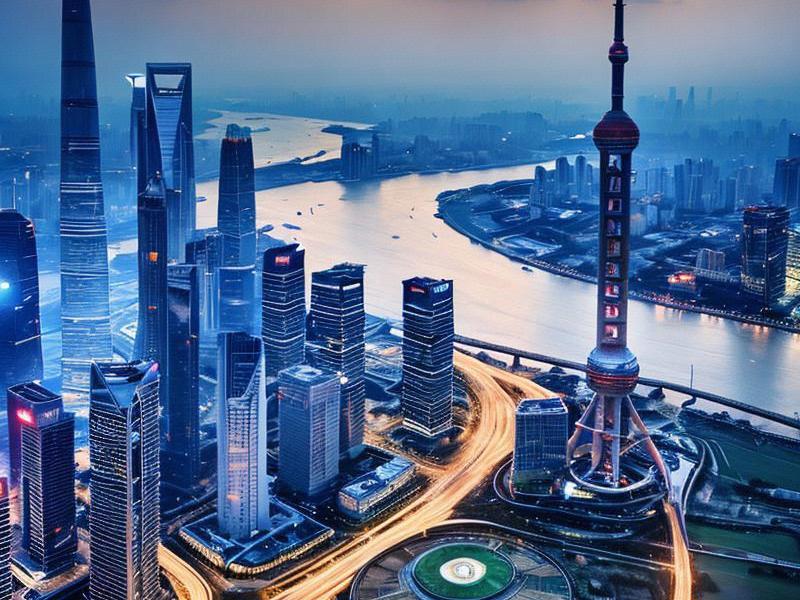
The Pearl Delta Economic Zone, often referred to as the "world's factory," has long been a powerhouse of China's economic growth. Spanning across Guangdong, Hong Kong, and Macau, this dynamic region has undergone remarkable transformations over the decades, evolving from a manufacturing hub to a global center for innovation, trade, and finance. As Shanghai, a leading city in China, plays a pivotal role in this region's development, understanding the Pearl Delta's journey offers valuable insights into China's broader economic landscape.
The Pearl Delta Economic Zone's rise to prominence began in the late 20th century, driven by its strategic location along the Pearl River estuary and its proximity to Hong Kong. This unique geographical position allowed the region to attract substantial foreign direct investment (FDI), particularly from Hong Kong and Taiwan, leading to the establishment of numerous manufacturing facilities. The influx of capital and technology transformed the Pearl Delta into a global manufacturing hub, producing a wide range of goods, from electronics and textiles to machinery and automobiles.
However, the region's economic model faced challenges in the 21st century as global economic conditions shifted and labor costs in China rose. To sustain its competitive edge, the Pearl Delta Economic Zone embarked on a path of transformation, emphasizing innovation, upgrading industries, and enhancing regional integration.
One of the key strategies for the region's transformation has been the promotion of innovation and technology. Cities like Shenzhen, a major city in the Pearl Delta, have emerged as global centers for high-tech industries, particularly in information technology, biotechnology, and new energy. Shenzhen's success is exemplified by companies like Huawei, Tencent, and ZTE, which have become global leaders in their respective fields. These companies have not only driven technological advancements but also contributed to the region's economic growth by creating high-value jobs and fostering a culture of innovation.
上海喝茶服务vx In addition to fostering innovation, the Pearl Delta Economic Zone has been actively working on regional integration to enhance its competitiveness. The Guangdong-Hong Kong-Macao Greater Bay Area initiative is a prime example of this effort. Launched in 2019, this ambitious project aims to integrate the economies of Guangdong, Hong Kong, and Macau into a cohesive and competitive regional bloc. By leveraging the unique strengths of each city, the Greater Bay Area seeks to become a global hub for innovation, trade, and finance.
Shanghai, as a leading city in China, plays a crucial role in the development of the Pearl Delta Economic Zone. While geographically separated from the Pearl Delta, Shanghai's economic influence extends to the region through various channels. One of the most significant connections is the Yangtze River Economic Belt, a national strategy that aims to integrate the economies of the Yangtze River Delta and the Pearl Delta. This integration is expected to enhance trade, investment, and technological cooperation between the two regions, creating new opportunities for growth.
Moreover, Shanghai's role as a global financial center provides valuable support to the Pearl Delta Economic Zone. The city's well-developed financial markets, advanced infrastructure, and skilled workforce make it an ideal partner for the region's businesses. Through joint ventures, technology transfers, and financial services, Shanghai helps the Pearl Delta access global markets and resources, further boosting its economic development.
上海品茶论坛 The transformation of the Pearl Delta Economic Zone also has significant implications for Shanghai. As the region upgrades its industries and emphasizes innovation, it creates new opportunities for collaboration and competition between the two cities. For instance, Shanghai's advanced manufacturing sector can benefit from the technological advancements and innovative practices emerging in the Pearl Delta. Similarly, the Pearl Delta's growing demand for high-quality goods and services provides a market for Shanghai's businesses.
Furthermore, the regional integration efforts, particularly the Guangdong-Hong Kong-Macao Greater Bay Area initiative, have the potential to enhance the overall competitiveness of the Yangtze River Delta and the Pearl Delta as a combined economic bloc. This integration could lead to the creation of a more integrated and efficient supply chain, enabling both regions to better compete in the global market.
However, the transformation of the Pearl Delta Economic Zone is not without challenges. One of the primary concerns is the environmental impact of rapid industrialization. The region has faced issues related to air pollution, water contamination, and waste management. Addressing these environmental challenges is crucial for ensuring sustainable development and maintaining the region's attractiveness to investors and residents.
上海品茶网 Another challenge is the need for skilled labor. As the region transitions from manufacturing to innovation-driven industries, there is a growing demand for highly skilled workers in fields such as technology, engineering, and finance. Investing in education and training programs is essential to meet this demand and ensure the region's long-term competitiveness.
In conclusion, the transformation and development of the Pearl Delta Economic Zone represent a significant chapter in China's economic history. From its origins as a manufacturing hub to its current status as a global center for innovation and trade, the region has undergone remarkable changes. Shanghai, as a key player in this process, contributes to and benefits from the zone's progress through various channels, including regional integration and financial support.
The ongoing efforts to promote innovation, enhance regional integration, and address environmental challenges will be critical in shaping the future of the Pearl Delta Economic Zone. By leveraging its strengths and addressing its challenges, the region has the potential to continue its remarkable journey and play a pivotal role in China's economic development.
As the world watches the evolution of the Pearl Delta Economic Zone, it is clear that this dynamic region will remain a key player on the global stage. The collaboration between Shanghai and the Pearl Delta, along with the broader integration efforts within China, will undoubtedly shape the future of not only these regions but also the global economy as a whole.
